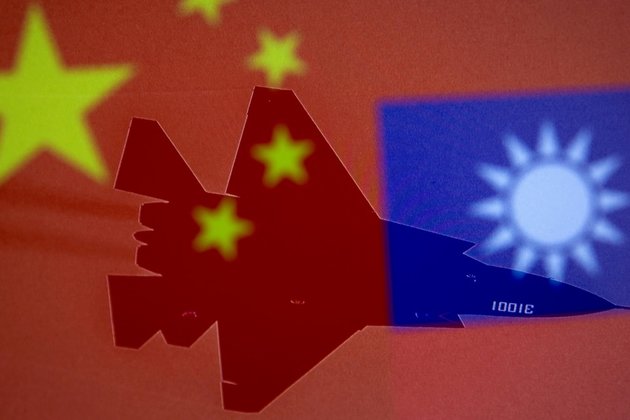

SAN FRANCISCO – China has the means to launch a disabling cyberattack against political rival Taiwan ahead of any military invasion, experts say, as the technology is already targeting the island’s political leadership.
Beijing claims self-ruled Taiwan as its own and has threatened to use force if necessary to unify the two sides. The claim has held since the Chinese civil war of the 1940s, when Chiang Kai-shek’s Nationalist government reestablished on the island after losing to Mao Zedong’s Communists. Most Taiwanese prefer to maintain the status quo, according to a National Chengchi University poll.
A straight-up military invasion would cost lives and mobilize U.S. forces for Taiwan’s defense. Disruptive cyberattacks could sow chaos and soften Taiwan’s defenses, potentially making an invasion less costly for Beijing, according to Chen Yi-fan, assistant professor of diplomacy and international relations at Tamkang University in Taiwan.
Attacks happening already
Chinese operators are already using the internet to launch an estimated 200 million to 400 million attacks each month, mostly targeting websites run by the government and Taiwan’s all-important semiconductor companies, Chen said.
“PLA’s [People’s Liberation Army] Strategic Support Force and its Network Systems Department may be those behind the scenes to conduct the maneuvers,” Chen said. “Successful cyberattacks can disable Taiwan’s critical infrastructure and make Taiwan vulnerable to follow-up PLA attacks.”
FILE – Part of the building of Unit 61398, a secretive Chinese military unit, is seen in the outskirts of Shanghai, Feb. 19, 2013. The unit is believed to have been behind a series of hacking attacks, a U.S. computer security company said.
Anonymous mainland Chinese nationals already poke at Taiwan by mobilizing thousands of social media accounts to condemn domestic policies of the island’s ruling Democratic Progressive Party (DPP), said Yun Sun, co-director of the East Asia program at the Stimson Center in Washington. The party takes a guarded view of any China-Taiwan unification.
In December 2019, DPP spokesperson Lee Yen-jong said the “Chinese internet army” had posted a “malicious” video on Facebook about a month ahead of party-backed President Tsai Ing-wen’s reelection. The video posed as a campaign commercial in support of the DPP and falsely claimed the party supports China-Taiwan unification under the one-country, two-systems type of rule that Beijing uses to govern Hong Kong.
Attacks today seek to steal intelligence and compile a list for cyberattacks in the “precision strike phase of any future operations,” said Taiwan’s Ministry of National Defense in a recent report.
During wartime, the report says, cyberattacks can be used to sabotage and destroy “national critical infrastructures and C2 [command and control] systems to cause turbulence and chaos in its society and decimate the internal security kept by the military and law enforcement organs of the nation and its government functions.”
The Chinese government does not acknowledge launching any attacks. The Chinese state-backed Global Times website, however, said this week that a Taiwan-based organization called GreenSpot had launched cyberattacks since 2007 against Chinese government agencies and aerospace and military-related research institutes “to steal high-value data and classified information.’
Disable first, strike later?
China could disable Taiwanese computer systems that run transport, utilities and defense operations to make a military strike easier, scholars suggest.
“If there is a war, and the Chinese shut down the power grid through a cyberattack, that may not completely shut down Taiwan’s defense system, but it’s going to have an impact,” Sun said.
Successful cyberattacks on financial institutions and other targets would shake people’s confidence, said Alexander Huang, chairman of a military strategy research foundation in Taipei. All of Taiwan’s “critical infrastructure” is connected by the internet, he added, a linkage that could cause “great difficulties” as well as widespread panic among people.
“If we got a cyberwar, then all these systems are down,” Huang said. “If the communication node is broken, then it would be a form of decapitation.”
Advanced conventional weapons such as new submarines and aircraft would be of little use during a debilitating cyberattack, he said, adding that it’s unclear whether Taiwan’s government has taken enough measures to guard against a major cyberattack.
Taiwanese officials first signaled awareness of the threat in 2000. The National Security Council came out with an “information and communication infrastructure security mechanism plan” that year and, in 2001, the government created a related task force, the academic website Taiwaninsight.org says. The government-run Central News Agency said Taiwanese officials began planning in 2018 to set up a cybersecurity academy that would help overcome a talent shortage among civil servants.
A media liaison with the defense ministry did not answer a request for comment on any preparations for wider cyberattacks from China.
24World Media does not take any responsibility of the information you see on this page. The content this page contains is from independent third-party content provider. If you have any concerns regarding the content, please free to write us here: contact@24worldmedia.com

A Brief Look at the History of Telematics and Vehicles

Tips for Helping Your Students Learn More Efficiently

How To Diagnose Common Diesel Engine Problems Like a Pro

4 Common Myths About Wildland Firefighting Debunked

Is It Possible To Modernize Off-Grid Living?

4 Advantages of Owning Your Own Dump Truck

5 Characteristics of Truth and Consequences in NM

How To Make Your Wedding More Accessible

Ensure Large-Format Printing Success With These Tips

4 Reasons To Consider an Artificial Lawn

The Importance of Industrial Bearings in Manufacturing

5 Tips for Getting Your First Product Out the Door